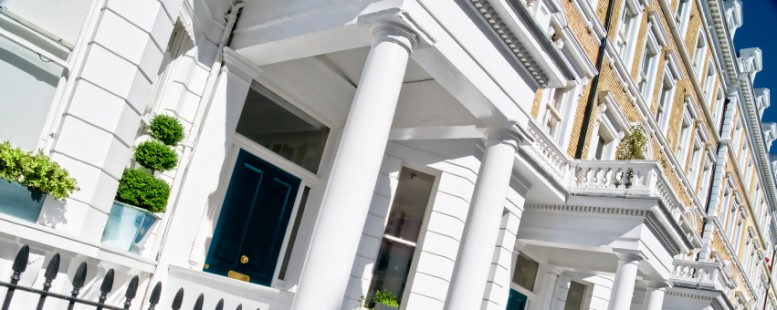Our Opinion: 2020
UK House Prices falling

For the first time in eight years, one of the country’s biggest house price indices has recorded a fall in house prices over the year – albeit just 0.1% compared to June 2019. The annual figure came after monthly falls of 1.4% during in June month, and by 1.7% in May. That leaves the average house in the UK now priced at £216,403.
It’s no wonder that prices fell. There are a lot fewer transactions happening, for a start. Even though sales picked up in May compared to April, they were still down by about 50% on the year. Mortgage approvals were hit even harder – down by 86% year-on-year in May.
And of course, we’re in the midst of a massive pandemic, unemployment has surged, and we’ve no idea what will happen next. Usually, we would be heading for epic falls. But this would require at least one of these two things: tighter credit conditions, or a sharp rise in longer-term unemployment. Both of these factors would create forced sellers, and both would reduce the number of potential buyers out there.
Lenders are wary of falling house prices, and rising unemployment. If you’re concerned that house prices will fall, you want to lend to someone with a big deposit, so that they’re the ones who take the hit first. So, if you’re a first-time buyer, or someone who needs a specialist loan (for example, if you’re self-employed) coronavirus has made it harder to buy.
But at the same time, rates on loans for those with big deposits or who are re-mortgaging are going ever lower. You can now get a ten-year mortgage for less than 2%, for the first time ever. So, if you already own a property, there’s no prospect of a ‘payment shock’ any time soon.
In other words, if you want to sell, you might struggle to do so at the price you want. But no one is going to be forced to sell by rising interest payments.
Unemployment is trickier – it’s probably the biggest question mark of all. It depends on lots of things including how quickly the economy bounces back, and also on how long it takes those who are made redundant to regain their feet. The government has already spent huge sums on propping up the economy, meaning it’s unlikely to allow a full-on house price crash take hold with politically toxic headlines about repossessions and the like (not to mention the impact on the banks).
A 2008-style crash is very unlikely. One wildcard is the rental market. If you’re renting, particularly if you’re in a big city, then now is the time to go shopping for a new place. With holiday bookings drying up, a lot of AirBnB landlords have apparently had to join the long-term lettings market, boosting supply.
As a result, various surveys suggest that rents have fallen in London. So, if your tenancy is up for renewal, there’s no harm in having a look and either moving or using it as leverage in any rent negotiations.
There is unlikely to be a return of ‘buy to let’ landlords in any real number since the fundamentals rarely make sense. As for would-be buyers, it’s possible that we might see a batch of rental properties hitting the sales market and driving up supply, although it’s worth remembering that a lot of that has already happened in the wake of the buy-to-let tax changes.
So, if you’re trying to buy a place to live in and you’re able to do so, it’s worth being punchy in terms of offers. Just bear in mind that the person on the other side of the table is more likely to be influenced by personal circumstances, rather than headlines about Covid-19.
7th July 2020
